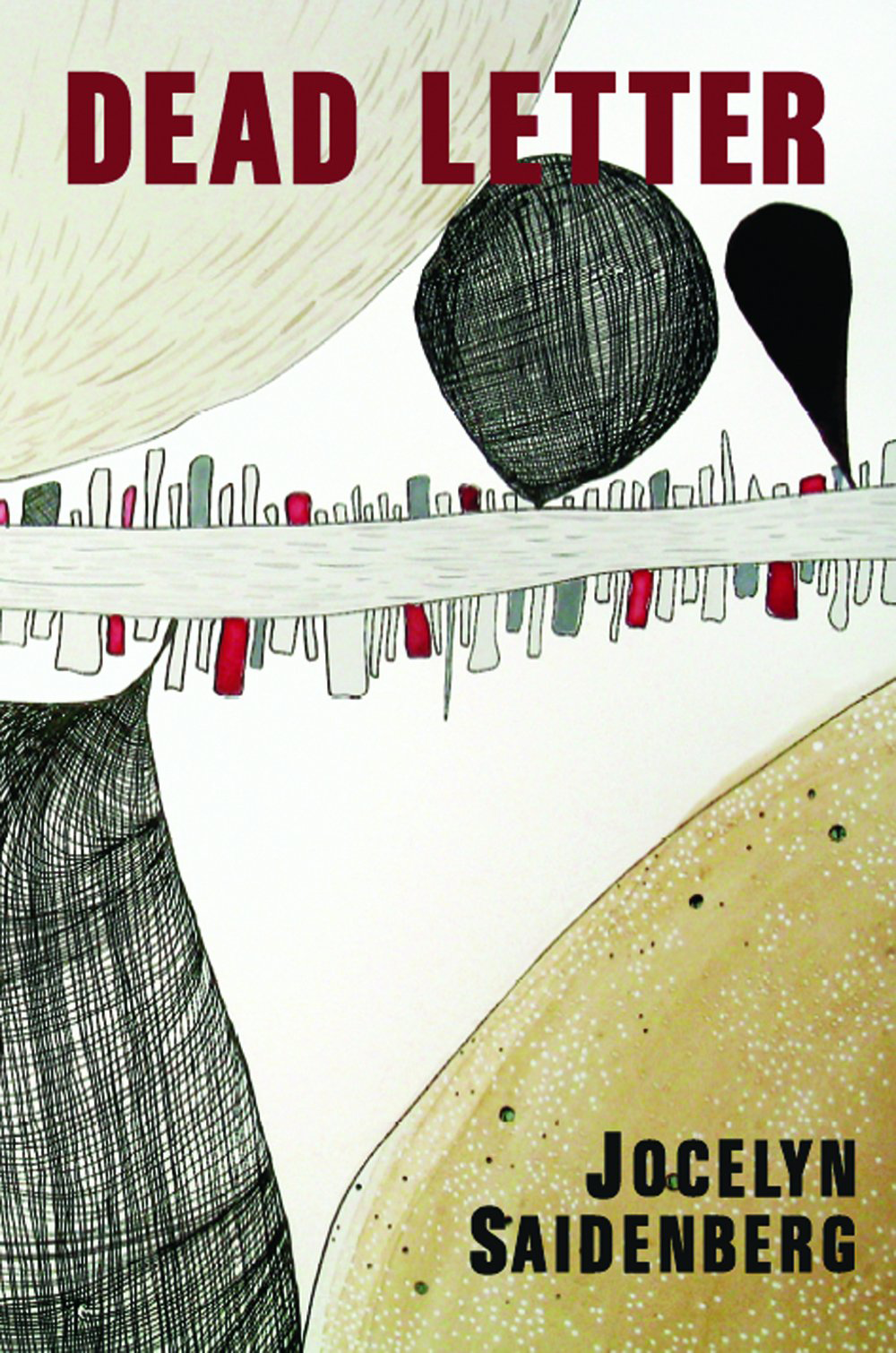DEAD LETTER
by Jocelyn Saidenberg
Finally! Bartleby speaks his mind. In 1853, Herman Melville published the short story “Bartleby, the Scrivener: A Story of Wall Street,” an icon for generations of resisters, and in the story all Bartleby repeats is one statement. According to Christian Nagler’s “Afterword,” “It may be the most reproduced meme in American letters: I would prefer not to.”
Jocelyn Saidenberg has given Bartleby full voice in Roof Books’ Dead Letter. “Let’s not keep Bartleby inert, not maintain him as an empty sign. Let’s not remain industriously bewildered, not translate his preferenceinto an unassimilable ambivalence between acceptance and refusal, not take moderate interest in him, not take it just as far as enigma,” says Nagler. Here we have the actual Bartleby laid out before us, his desires, his frustrations and finally his revolt. Rarely has one person’s point of view been so long awaited. Roof Books is proud to present Dead Letter by Jocelyn Saidenberg.
“More than a retelling of Melville’s Bartleby the Scrivener, Dead Letter is a revelation: it digs into the core of the original and pulls out the hidden, the unthought, the previously unspoken. Saidenberg pushes Bartleby’s ‘preferring not to’ through the first layer of refusal—that act of will, insistence of self—into the terrain of love and death, death by love, a most extreme form of devotion. This novel is a profound examination of where desire and writing meet the living, working body: “my asylum of thinking not thinking thinking.” At first, it held me then it blew me away.”
- Renee Gladman
“Under Saidenberg’s canny rendering, a radical repositioning of Melville’s narrative consciousness takes place, allowing the Scrivener an opportunity to inscribe, into the account of his “passivity,” his capacity for resistance and love. Melville’s character mutes his senses and lapses into perfect inactivity; Saidenberg’s insists and occupies. That his insistence is on negativity makes it no less forceful; that his occupation is motivated by love makes it no less political. This is a tale of the Other as autonomous, exercising a refusal to be used even as an object of interpretation, and requiring the right to love.”
- Lyn Hejinian
“Jocelyn Saidenberg’s Dead Letter enjoins us to listen for unlinking at the moment of refusal. Her haunted graceful I functions as a kind of narrative nachtraglicheit; where language from the past fashions an elegant embargo on the present: This event will/have happened. Dead Letter gorgeously holds us to the strange space between cause and effect, between what arrives unbidden and what we convince ourselves we prefer not to entertain. There is no reason on earth to prefer not to read this sublime book.”
- Kim Rosenfield
“What if I prefer not to write myself legibly? What if I decline yes, no, and all other positions? Then disbelief becomes its own mysticism and speech becomes an oracle from the other side of the limit. This figure without form in Jocelyn Saidenberg’s Dead Letter has the empty voice of negative space. It is the White Whale’s gabby cousin!—translating the deep shadow of an expanding empire into the deeper shadow of a contracting one. Was there ever more fertile aporia or truer Valentine?”
- Robert Glück
Jocelyn Saidenberg’s books include Mortal City, Cusp, Negativity and Shipwreck. Born in New York City, she has lived and worked in San Francisco since 1994.

